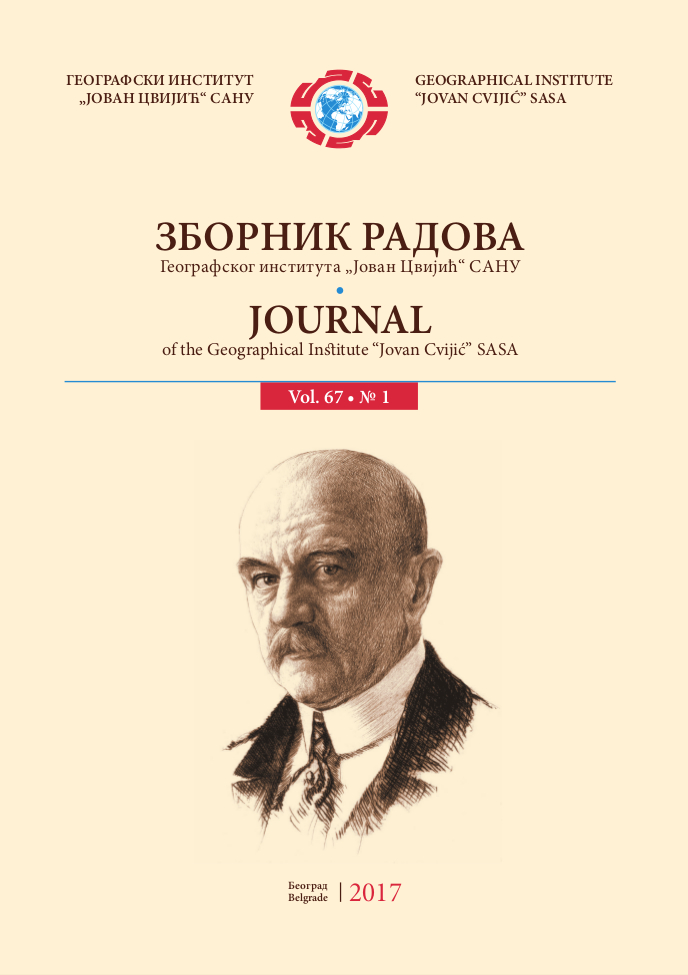NATURAL POTENTIALS OF SIGNIFICANCE FOR THE SUSTAINABLE TOURISM DEVELOPMENT – THE FOCUS ON THE SPECIAL NATURE RESERVE
NATURAL POTENTIALS OF SIGNIFICANCE FOR THE SUSTAINABLE TOURISM DEVELOPMENT – THE FOCUS ON THE SPECIAL NATURE RESERVE
Author(s): Snežana Štetić, Igor Trišić, Adrian NedelcuSubject(s): Geography, Regional studies, Tourism
Published by: Географски институт »Јован Цвијић« САНУ
Keywords: sustainable tourism development; Zasavica; wetlands; biodiversity
Summary/Abstract: The Special Nature Reserve "Zasavica" is a significant wetland and Ramsar site of the southwestern part of Vojvodina Province (Northern Serbia). This complex of aquatic habitats has been formed by the effects of the Sava and the Drina rivers. This former riverbed of the Sava River and the today’s Zasavica stream makes the basic hydrographic resource of this protected area. The reserve is inhabited by numerous rare and endangered plant and animal species, which unitedly make rare biodiversity, unique in the country and the region. Whether the area of the Special Nature Reserve “Zasavica” represents a significant potential for the development of tourism will be concluded in this paper by using two scientific methods. The obtained results from a conducted questionnaire, as the first method, will be used to analyze the interplay of factors and their interrelations as potentials for sustainable tourism development, outlined in the Sustainable Tourism Development Strategy of Serbia.The obtained results can examine the main hypothesis that the SNR is a significant tourist potential for ecotourism both at the level of the Republic of Serbia and at the level of the countries in the region, such as Hungary, Romania, Bulgaria, Croatia, Bosnia and Herzegovina, as well as other European countries. By enhancing sustainable tourism and protecting the space of this reserve, and by implementing the national tourist offer, higher socio-cultural, economic and ecological benefits can be achieved.
Journal: Зборник радова Географског института "Јован Цвијић" САНУ
- Issue Year: 69/2019
- Issue No: 3
- Page Range: 279-287
- Page Count: 9
- Language: English

